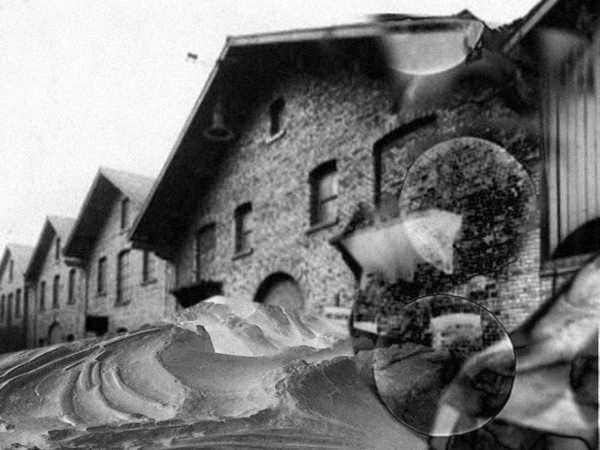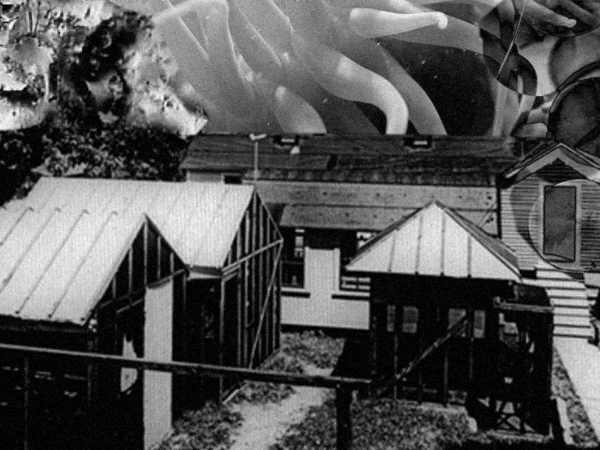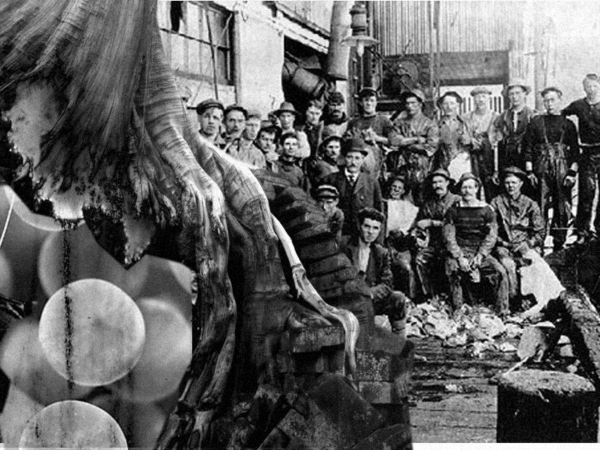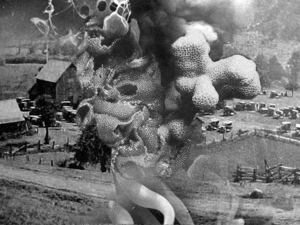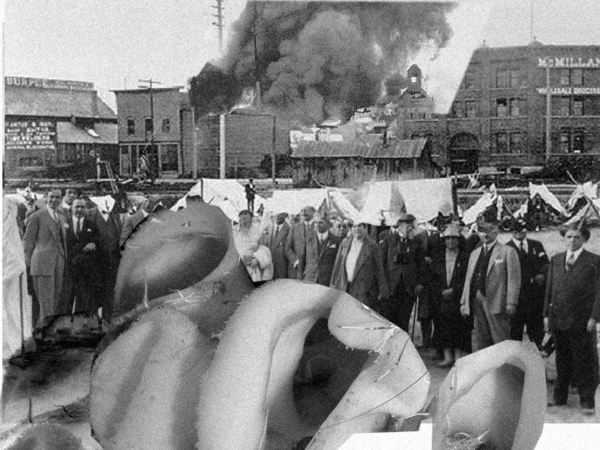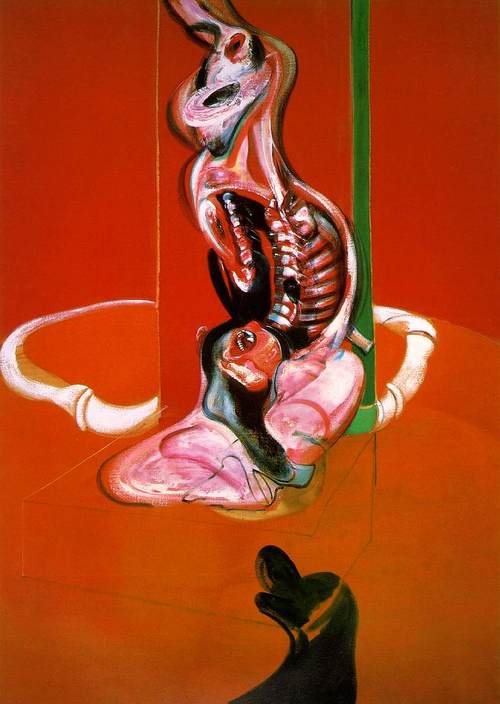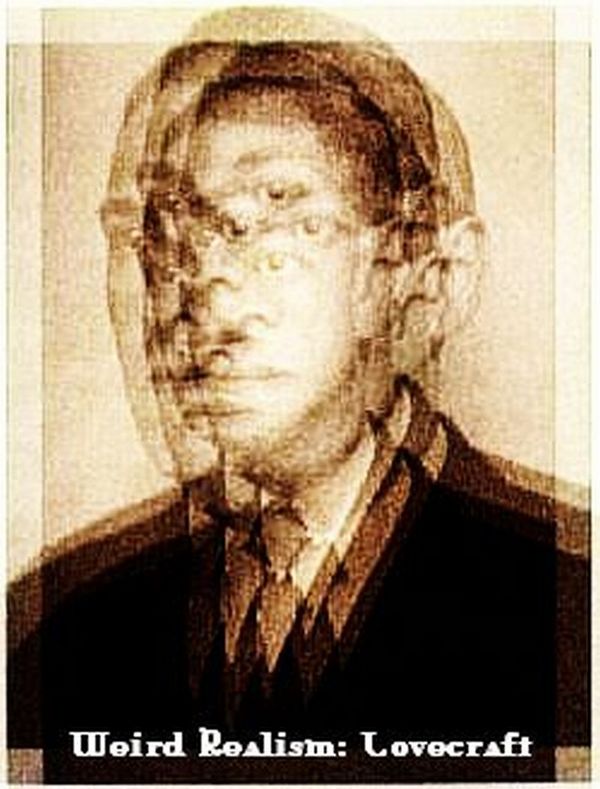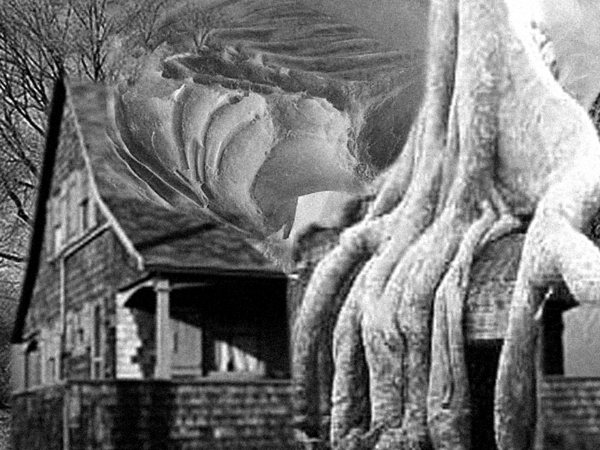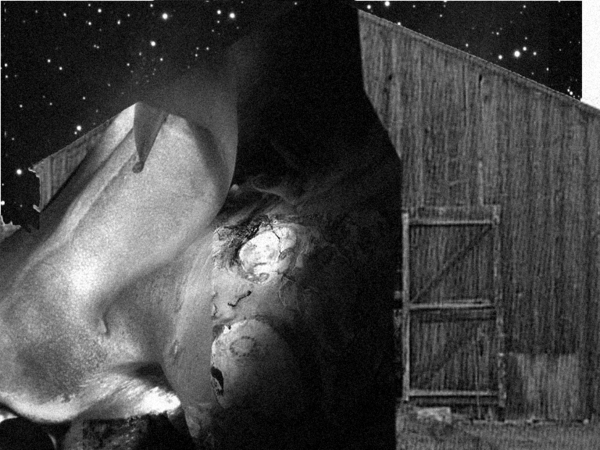May 31, 2007
Viva resentment!
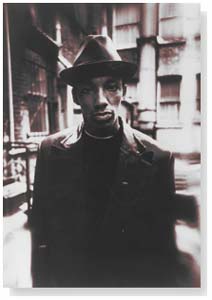 |  |
Master your language!
Owen makes a case for resentment. One of the highlights of Zizek's lectures at Birkbeck last year was his bravura attempt to do much the same thing; one of the more worthwhile of his recent reversals of leftist (or perhaps post-structuralist) orthodoxies.
The reclaiming of a certain kind of resentment doesn't even have to be an anti-Nietzschean move. Nietzsche's, after all, was not a denunciation of resentment per se so much as an attack ondisavowed resentment. The slave's fault is his bad sublimation of his feelings of resentment; instead of admitting that he covets the master's power and strength, the slave pretends (to himself) that it is better to be pacified, inadequate, wretched. A resentment that induced the slave to rise up and better the master would no longer belong to slave morality.
Resentment is a much better Marxist affect than jealousy or envy. The difference between resenting the ruling class and envying them is that jealousy implies a wish to become the ruling class, whereas resentment suggests an anger at their possession of resources and privilege. A resentment that led only to grumbling inaction is certainly the very definition of a useless passion. But it is by no means obvious that resentment should end up in such impotence. Certainly my experiences with teaching unions suggest that it is far easier to motivate workers by appealing to feelings of resentment than in it is to appeal directly to any innate sense of their own worth. Resentment of privilege and unfairness is in many cases the first step towards confronting introjected and taken-for-granted feelings of inferiority. 'Yes... why should they get more than us?'
Last year, I quoted Jameson's important observations on class and the experience of inferiority. I make no apologies for repeating the passage: '[C]lass consciousness,' he wrote, 'turns first and foremost around the question of subalternity, that is around the experience of inferiority. This means that the "lower classes" carry around within their heads unconscious convictions as to the superiority of hegemonic or ruling-class expressions or values, which they equally transgress and repudiate in ritualistic (and socially and politically ineffective) ways.' Unless resentment is confronted, any affirmation is in danger of becoming an unconscious affirmation of one's subordinated, inferior position. Affirmation will precisely end up a 'socially and politically ineffective' ritualistic transgression, an acting out, that leaves the class structure intact. The will to become more ('I am nothing and should be everything') turns into a defence of what one already is. My defences/ become fences....
Unacknowledged resentment remains the dominant libidinal motor here: cf what Bat, in Owen's comments boxes calls 'the furiously oscillating couple of playa/hater in hip-hop culture'. Indeed - nothing demonstrates this phenomenon better than hip hop: capitalist realism as social lottery and cartoon spectacle, with the lonely playas in their penthouses engaging in a kind of resentment of resentment. 'Why can't they let us enjoy our wealth in peace?'
It's fitting that Owen should invoke Tricky here. Pre-Millennium Tension fits into a long tradition of working class disillusion with the trappings of pop success. The lines from 'Christiansands' that Owen cites - 'I'll master your language' (followed by: 'and in the meantime I'll create my own') - would resonate with anyone projected out of the subordinate class or anyone who wishes to escape such subordination. 'Tricky Kid' recounts what happens when Tricky achieves his goal; it is at one and the same time his version of playa bragging ('I live the life they wish they did... Now they call me superstar') and a registering of disgust at what he witnesses at the summit ('coke in ya nose'). Disgust at ruling class revelry doubling into self-disgust, both slipping into religous mania - class dislocation has never sounded so psychotic. Sadly, Tricky could not himself resolve the contradictions that his success produced - how could he? How could any individual?
It is precisely in the compulsory affirmations which contemporary culture insists upon that we can find the bad side of resentment. I think Simon was right to say that a certain resentment underlies Popism, for instance. It seems to me that the elevation of the Paris Hilton LP to a central object of study reveals the double bind of Popism: either it has to be admitted that the interest is motivated by a reactive flouting of what are taken to be rockist hierarchies, or it is must be claimed that the LP is being assessed on its own merits, because it is 'good', in which case all the problematic issues of evaluation and canonicity are raised again. Notice that I'm not saying that the LP was bad; like most record buyers I was indifferent to it. What I am questioning is whether the Popist affirmation of the LP could have happened without a rockist big Other to scandalise.
There is a very definite class dimension in my distaste for Popism. Popism seems to be the working out of set of ruling class complexes: a sneaking past matron to enjoy forbidden pleasures. 'We ought to like classical music, but really we like Pop!' (Incidentally: how many Popists are there who didn't go to Public School?) For those of us who weren't brought up into high culture, Popism's calls to be always cheerful about mass culture are very much like being told (by our class superiors, natch) to be content with our lot. In working out its own resentments, what Popism takes away is nothing less than the right to resentment of the subordinate group. By contrast, the significance of something like Dennis Potter or postpunk was that they gave access to aspects of high culture in a space that de-legitimated high culture's exclusivity and privilege. The utopian space they opened up was one in which ambition did not have to end up in assimilation, where mass culture could have all the sophistication and intelligence of high culture: a space which pointed to the end of the current class structure, not its inversion.
Owen is right. Resentment is a fitting response to the degrading and degraded version of popular culture currently served up by the Oxbridge elite. Resentment versus contempt and condescension. Resentment and malcontentment: the beginnings of resistance to capitalist realism's compulsory positivity.
In other news: check out this jaw-dropping example of managerialist inanity. If I were writing a sitcom now, it would be about 'staff development', which is both sinister and self-satirisingly hilarious. I wonder if anyone has come upon a worse or comparable example of dubious staff development initiatives?
I will be in London for a few days, at Simon's thing at Borders tomorrow and at the Lee Edelman/ No Future event on Saturday. Any readers who are going who would like to say hello, please mail me. There may not be any posts until early next week, but never fear, I have some big ones planned.
May 25, 2007
Lip synch the unheimlich
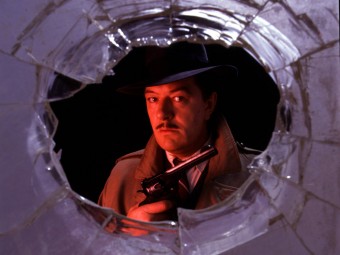
Blowing a hole in the Symbolic Order...
Owen is certainly right about the uncanniness of Dennis Potter. However, far from Potter's 'strangeness of the everyday' being an unusual mode of the uncanny, this is the uncanny in itself, the familiar within the strange, the strangely familiar, the unhomely. Specifically, Owen refers to the fact that
- in The Singing Detective the real singing voice is always recorded. The eeriness of the scenes where Marlow's parents play the Ink Spots is provided by the fact that it isn't mimetic: we don't hear the sound of Alison Steadman playing the piano, but the 'original' recording in all its crackliness, echo and antiquation: the song as the boy would remember it coming out of a speaker, listening in from the stairs.
The music is not located within the diegesis, but functions to disrupt it . The ontological disjunction between the music and the drama's 'realism' is insisted upon rather than airbrushed out. The characters are not singing; they are lip synching.
The recorded music thus becomes a site through which the Real interposes itself, in at least two ways. Firstly, - and, as I argued here - the songs articulate the characters' fantasies and desires, the Real (voided) core of their being which cannot be acknowledged within the Symbolic order. The preprogrammed, recorded nature of the music is absolutely crucial to this Real, because, instead of belonging to some intimate interiority, they are part of an extimate structure. The very fact that love songs work at all presupposes this. As I suggested here, 'The jouissance of being-in-love, as we all know, is to do with becoming an automaton, you find yourself unable to resist re-citing all those corny lines - many of which are not not statements of feelings per se, but reflexive statements about what you are feeling i.e. "I’ve never felt like this before…" - but REALLY meaning them THIS time.' Here Potter is perfectly in tune with Lacan: both insist on the way in which the structure of desire sings us, turns us into ventriloquist's dummies who repeat its 'sweet nothings'.
But there is a second version of the Real at work here too - the demystifying Real. For, rather than pretending to be actually singing the songs, the actors are doing exactly what they appear to be doing: lip-synching to them. In film musicals or pop videos, lip-synching is disavowed, recording is effaced and the recorded music is naturalised by being presented as spontaneous performance. Zizek is wont to reject this 'demystifying Real', the postmodern version of the Brechtian alienation-effect, as an authentic case of the Real. In fact, he claims that such moments of postmodern demystification are in flight from the Real of fantasy and desire. But I think that Potter demonstrates that this is not always the case.
The other artist who combines the demystifying Real with the libidinal Real to explosive effect is none other than ... David Lynch. I've remarked before, and more recently here (my, this post is turning into a k-punk greatest hits!) on the affinities between Potter and Lynch. Owen is right to point up a contrast between Lynch's Weirdness and Potter's Uncanniness, yet there are zones of indiscernibility where Lynch is working on the terrain of the Potteresque uncanny. The most powerful example of this is the Club Silencio scene in Mulholland Dr. Club Silencio is both mercilessly demystifying - ‘There is no band. What you will hear are recordings’ - and in thrall to the en-trancing lure of illusion, specifically in this case to the power of the audio-illusions of pre-recorded sound. Here, surprisingly, we confront an unlikely, seemingly paradoxical composite: Surrealist-Brechtianism. Perhaps, however, Surrealist-Brechtianism is not so unprecedented, after all. What is Magritte's 'This is not a Pipe' if not an example of this strange pairing?
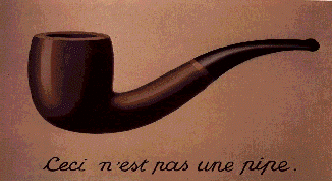
If lip-synching can produce uncanny effects, then so can actual singing, as trailers for Anton Corbijn's upcoming Joy Division film (see below) demonstrate. Corbijn's decision to have the actors actually learn and play the Joy Division songs looks to have been a good one. The standard technique in rock bio-pics is to have the actors lip-synch to the original band's recordings. Typically, this does not produce an interesting Lynchian/ Potteresque charge, but a botched naturalization. The songs are unconvincingly sutured to the actors' performances in the style of a bad pop video, undermining both the recordings and the diegesis. To avoid this, Corbijn would either have had to go for a Singing Detective-style alienation effect, where the gap between the actors' miming and the original recordings was played up, or else do what he ended up doing, and have the actors actually perform the songs. The latter option makes for an unsettling, eerie experience: a karaoke of doppelgangers.
Lovecraft and the Weird: Part II
(Part II of my reflections on/ extrapolations of the Weird Realism event. Part I is here.) Collages by Julian House.
A provisional definition of the Weird might take its cue from the slightly odd and ambiguous phrase 'out of' that Lovecraft uses in the titles of two of his stories, 'The Colour Out of Space' and 'The Shadow Out of Time'. On the simplest level, 'out of' evidently means 'from'. Yet it is not possible - especially in the case of 'The Shadow Out of Time' - to avoid the second meaning, the suggestion of something removed, cut out. The shadow is something cut out of time. This notion of things 'cut out' of their proper place is one way in which Lovecraft has an affinity with modernist techniques of collage. Yet there is also a third meaning of 'out of': the beyond. The shadow out of time is, in part, a shadow of that which is beyond time.
Thinking of the Weird as the 'out of place' or the 'out of time' will take us some way to distinguishing the Weird from both the Fantastic and the Uncanny. Lovecraft's texts are not Fantastic in Todorov's sense because in his 'localised realism' there is no sense of being suspended between naturalism and supernaturalism. In Lovecraft's 'non-supernatural cosmic art', naturalism has been rejected, but not in favour of a 'marvellous' supernaturalism. As we have already seen, Lovecraft's emergence as a writer in his own right is only secured once he has left behind the Fantasy worlds of Dunsany. Worlds may be entirely foreign to ours, both in terms of location and even in terms of the physical laws which govern them, without being Weird. It is the irruption into this world of something from Outside which is the marker of the Weird.
Conceiving of the Weird as the 'out of place' clearly differentiates it from Todorov's notion of the uncanny (which is marked by the restoration of the ordinary, the return of natural laws). But it is also significantly different from Freud's version of the uncanny, too. (I should point out, at this juncture, that 'weird' comes up once in Freud’s essay as one of the many synonyms for 'unheimlich'.) Freud's uncanny is about the strange within the familiar, the strangely familiar, the familiar as strange - about, that is, the way in which the domestic world does not coincide with itself. The pyschopathologies at work here are those proper to the interior itself. The Weird brings into this interior space something which is properly beyond it, which cannot be commensurated with the 'homely' (even as its negation).
Freud's account of the uncanny has justly been highly influential on the study of Horror - in the end, more because of Freud's hesitations, conjectures and rejected theses than for the actual definition he provides. Freud's ultimate solution to the enigma of the Uncanny - his claim that it can be reduced to castration anxiety - is disappointing. What fascinates is the cluster of concepts that circulate in Freud's text, and the way in which they often reflexively instantiate the very processes that they refer to. (As Nicholas Royle's comprehensive but irritating study of The Uncanny brings out, often at rather excruciating length.) Repetition and doubling - themselves an uncanny pair which double and repeat each other - seem to be at the heart of every uncanny phenomena which Freud identifies.
But neither doubling nor repetition play a central part in the Weird. As China pointed out, the Weird has nothing to do with the 'return of the repressed'. There are, naturally, those who find the repressed - particulary the repressed of sex - returning everywhere in Lovecraft's fiction in disguised form. But this is quite different from saying that Lovecraft's stories - unlike, say, Poe's - are actually about the return of the repressed. Lovecraft's entities do not emerge as the emissaries of his characters' repressed psychic conflicts.
In rejecting the association of the Weird and the 'return of the repressed', China argued that, far from being about the insistence of the past, the Weird is about the breakthrough of the entirely new. As he put it in his introduction to 'At the Mountains of the Madness':
- Lovecraft resides radically outside any folk tradition: this is not the modernising of the familiar vampire or werewolf (or garuda or rusalka or any other such traditional bugbear). Lovecraft’s pantheon and bestiary are absolutely sui generis. There have never been any fireside stories of these creatures, we have neither heard of nor seen anything like them before. This astonishing novelty is one of the most intriguing and important things that can be noted about Lovecraft, and about the tradition of weird fiction in general.
(Crudely ... one might point to the early twentieth century’s sudden literary proliferation of the tentacle, a limb-type largely missing from western mythology, as symptomatic of this sea-change in the conceptualisation of monsters. There are partial precursors in some of H. G. Wells’s creatures, in the cowled hunter of MR James’s story ‘Count Magnus’, and later superb examples in the works of William Hope Hodgson, E. H. Visiak and others. Of these writers, however, Lovecraft remains utterly pre-eminent.)
If this claim about the newness of the tentacle seems initially surprising, it turns out to be extremely difficult to refute. The kraken might appear to be a counter-example, yet, as China pointed out, the kraken was described as having 'arms' not tentacles.
There is another, crucial, dimension of the newness of Lovecraft's creations however: it is disclaimed and disguised by the author. China: 'There is ... a paradox to be found in Lovecraft’s narrative. Though his concept of the monstrous and his approach to the fantastic are utterly new, he pretends that it is not.' When they confront the Weird entities, Lovecraft's characters find parallels in (invented) mythologies and lore. Lovecraft's retrospective projection of a newly minted mythos into the deep past gave rise to what Jason Colavito calls the 'cult of alien gods' in writers such as Erich von Däniken and Graham Hancock. Lovecraft’s 'retro-interring' of the new is also what places his Weird fictions 'out of' time - much as in 'The Shadow out of Time', Peaslee encounters texts written in his own hand amongst architectural relics.
The emphasis on the new disguised as the old brings out another difference from the uncanny. Freud's uncanny is about the impossibility of the new; every seeming instance of the new will turn out to be a repetition of the very old. Lovecraft's Weird is the precise opposite of this; every apparent instance of the old is actually a case of the new. China's explanation for the Weird's radical newness is the impact of the vast trauma of the First World War (which also played its part in generating Freud's essay on 'The Uncanny' and the later 'Beyond the Pleasure Principle'). Like David Skal in The Monster Show: A Cultural History of Horror, China argues that both the deformations in Pulp Horror and the formal experiments of Modernism have their roots in the cataclysym of the Great War.
Now that we have differentiated Lovecraft from Freud, it is time to turn to the parallels between the two. Both Freud and Lovecraft's work is fundamentally about trauma, or transcendental shock. Trauma cannot be conceived of in empirical terms, because it is not an experience so much as a gap or lacuna in experience. The difference between an extremely distressing experience and a traumatic encounter turns on this lacuna. There is a fundamental ambiguity in the notion of 'transcendental shock', which Dominic drew out very well in his recent post on the subject. As Dominic puts it, the question is
- whether the “transcendental shock” presented in Lovecraft’s horror fiction is a shock registered within the transcendental, or a shock to the transcendental itself. In other words: do the “weird” elements within the fiction appear as a (disruptive, incoherent) projection across the screen of the transcendental, indicating an “outside” that is only ever manifest as a lacuna in manifestation, or do they place the transcendental itself in question, establishing a precedence of the inhuman that the transcendental cannot subdue or reappropriate?
There is a sense in which even Kant would himself have granted the theoretical 'precedence of the inhuman' over the transcendental. (Moreover, as the structural preconditions for all human experience and cognition, the transcendental is itself inhuman.) His claim, let's remember, is not that there is nothing beyond the transcendental, only that it is not possible for human beings to experience or cognize this Beyond. Rather than being the prosecutor of a 'deflationary realism' which reduces the universe to a human construction, Kant can appear as the defender of the ultimate alienness of an Outside which necessarily resists any human attempt to grasp it.
The dispute between Speculative Realism and Kantianism turns on both the question of the reality (non-ideality) of space-time and on the possibility of a knowledge radically alien to phenonomenal experience. The positing of such knowledge motivates Speculative Realism to return to Descartes and to mathematics as the model for a type of knowledge which has no analogue in common-sense or experience.
Yet the reason that I believe Lovecraft remains a Kantian is that in his stories the incursions of the Outside are always destructive of identity, sense and sanity. The quest for arcane knowledge can only ever end in schizophrenia. The Real cannot be assimilated. The climactic encounter with the Real in Lovecraft’s stories ends in an identification that shatters identity, a disintegrative integration of the Outside into an interior that is retrospectively revealed to be a delusive envelope, a sham. Take the early, Poe-inspired ‘The Outsider’, in which the unnamed character reaches out his fingers towards a shambling monstrosity only to feel the cold surface of reflective glass – Lovecraft’s version, or reversal, of the mirror stage, in which a being that had previously imagined itself to be complete and coherent finds that it is a monster. Or ‘The Shadow over Innsmouth’, in which it is ultimately revealed that the lead character is himself a Deep One. (As Dominic pointed out, it is unclear what the mechanism that has brought about this transformation is: is it genetic reversion, or contamination, or some combination of the two?) I am It; where Ego was, Id shall be.
This is why the category of the traumatic is so suggestive in relation to Lovecraft's stories: it grants the importance of the transcendental whilst also indicating how it can be ruptured. Famous remarks that Freud makes in 'Beyond the Pleasure Principle' ('as a result of certain psychoanalytic discoveries, we are today in a position to embark on a discussion of the Kantian theorem that time and space are "necessary forms of thought"’) indicated that he believed that the unconscious operated beyond the transcendental structures of time, space and causality which govern the perceptual-conscious system. Throughout his work, Freud repeatedly stressed that the unconscious knows neither negation nor time. Hence the Escheresque image in 'Civilization and its Discontents' of the unconscious as a Rome 'in which nothing that has once come into existence will have passed away and all the earlier phases of development continue to exist alongside the latest ones' (an image recently, and aptly, cited by Daniel in one of his posts on INLAND EMPIRE).
Freud's weird geometries have clear parallels in Lovecraft's fictions, with their repeated invocations of non-Euclidean spaces. Witness the description of 'the geometry of the dream-place' in 'Call of Cthulhu': 'abnormal, non-Euclidean, and loathsomely redolent of spheres and dimensions apart from ours.'
Yet it is important not to surrender Lovecraft too quickly to a notion of the unrepresentable. Lovecraft is too often taken at his word when he calls his own entities 'unnameable' or 'indescribable'. As China pointed out, typically Lovecraft no sooner calls an entity 'indescribable' than he begins to describe it, in very precise technical detail. (Nor, despite his predilection for using the term 'unnameable' - mocked but also defended by Lovecraft himself in his own story 'The Unnameable' - is Lovecraft shy of giving names to Things.) But this sequence has a third moment. After (1) the declaration of indescribability and (2) the description comes (3) the unvisualizable. For all their detail, or perhaps because of it, Lovecraft's descriptions do not allow the reader to synthesize the loghorreic schizophony of adjectives into a mental image, prompting Graham Harman to compare the effect of such passages with Cubism, a parallel reinforced by the invocation of 'clusters of cubes and planes' in 'Dreams in the Witch House'.
So far, my discussion of Lovecraft's weird realism has concentrated on what happens within the stories themselves, but one of the most important effects Lovecraft produces happens between the texts. The systematization of Lovecraft's texts into a 'mythos' might have been the work of August Derleth, but the inter-relationship of the stories, the way in which they generate a consistent reality, is crucial to understanding what Ben Noys called the 'Lovecraft event'. It might appear that the way that Lovecraft produces such consistency is not very different to the way in which Tolkien achieved a similar effect, but, once again, the relationship to this world is crucial. By setting his stories in New England rather in some inviolate, far distant realm, Lovecraft is able to tangle the hierarchical relationship between fiction and reality. The interpolation into the stories of simulated scholarship alongside authentic lore and history produces ontological anomalies similar to those created in the 'postmodernist' fictions of Robbe-Grillet, Pynchon and Borges. By treating really existing phenomenon as if they had the same ontological status as his own inventions, Lovecraft de-realises the factual and real-ises the fictional. Graham Harman looks forward to a day when Lovecraft will have displaced Holderlin from his throne as philosophers' most exalted object of literary study. Perhaps we can also anticipate a time when the pulp modernist Lovecraft displaces the postmodernist Borges as the pre-eminent fictional explorer of ontological conundra. The 'Lovecraft event' instantiates what Borges only 'fabulates'; no-one would ever believe that Pierre Menard's version of Don Quixote exists outside Borges' story, whereas more than a few readers have contacted the British Library asking for a copy of the Necronomicon. (Borges was ambivalent about Lovecraft: according to Zack Stenz, 'Borges, in his maddeningly elliptical way, first denied ever having heard of Lovecraft--then went on to dedicate his story "There Are More Things" to him.' Borges also reputedly held the hackneyed view that Lovecraft's flaw was in describing his monsters in too much detail.)
Lovecraft generates a 'reality-effect' by only ever showing us tiny fragments of the Necronomicon. It is the very fragmentary quality of his references to the abominable text that induce the belief in readers that it must be a real object. Imagine if Lovecraft had actually produced a full text of the Necronomicon; the book would seem far less real than it does when we only see citations. Lovecraft seemed to understood the power of the citation: something seems more real if it is cited than if it is encountered in the raw; and a text is only accepted as genuine once it is authenticated by another text.
One effect of such ontological displacements is that Lovecraft ceases to have ultimate authority over his own texts. If the texts have an autonomous reality, then his role as their ostensible creator becomes incidental. What matters is the consistency of his fictional worlds - a conistency which invites collective participation by both readers and other authors alike. As is well known, not only Derleth but also Clark Ashton Smith, Robert E Howard, Brian Lumley, Ramsey Campbell and many others have written tales of the Cthulhu mythos. Again, the contrast with Borges is instructive. Still a classical author, Borges remains the Master of his texts, their God, because he makes and destroys his worlds with each new act of fictional creation. By webbing his tales together, Lovecraft loses control of his creations to the emerging system, which has its own rules that acolytes can determine just as easily as he can. (Compare the titular character in Peter Straub's Mr X, who sincerely believes that the Lovecraft mythos is true.) Lovecraft, the Pulp engineer, is an inventor of formulae which others can use.
Lovecraft's fictions also enjoy a special relationship to capitalism. Lovecraft, in fact, may be the great poet of capital - not because he explicitly deals with capital in his texts (Houellebecq argues that money, like sex, is gloriously absent in Lovecraft's fiction, although, as China drew out at the Weird Realism event, a text like 'The Shadow over Innsmouth' centrally concerns the relationship between State regulation and the market), but because he provides a heightened imagery equal to capital's protoplasmic mutability. Capitalist power can be understood as 'tentacular' rather than pyramidal. But it is in the shoggoths - signficantly, the proletarian entities in his fictional system, the drones bio-engineered by the Elder Things to perform construction tasks - that Lovecraft produces his most compelling image of capital. Lovecraft's entities are often erroneously described as formless, but the shoggoths are better characterized as only ever having a temporary and provisional form, much like capital itself, whose power, as Deleuze and Guattari have it, 'resides in the fact that its axiomatic is never saturated, that it is always capable of adding a new axiom to the preceding ones.'
It is not accidental that, in their characterization of capitalism, Deleuze and Guattari's language coincides with that of Lovecraft: in Anti-Oedipus they describe Capital as a Thing without any fixed or final form, but which reveals the previously occulted forms of preceding social systems by incarnating what they had abominated. 'If capitalism is the universal truth, it is so in the sense that makes the capitalism the negative of all social formations, it is the thing, the unnamable, the generalized decoding of all flows that reveals a contrario the secret of these formations.' (Deleuze and Guattari never remark upon this coincidence of registers; they do not mention it when they discuss Lovecraft in A Thousand Plateaus.) As Ray Brassier glosses in his 'hazardous' splicing of D/G with Badiou in his 'Remarks on Subtractive Ontology and Thinking Capitalism', '"Capital" names what Deleuze and Guattari call the monstrous "Thing", the cancerous, anti-social anomaly, the catastrophic over-event through which the inconsistent void underlying ever consistent presentation becomes unbound and the ontological fabric from which every social bond is woven is exposed as constitutively empty.'
It is John Carpenter who provides a compelling image of capital's 'metamorphic plasticity' in his own The Thing. Carpenter's The Thing owes a great deal to 'In the Mountains of Madness' - the Antarctic setting, but also the protean and shoggothic nature of The Thing itself. There is much more to be said on the relationship between the Lovecraftian Thing and other Things: Lacan's, Freud's, Kant's, Carpenter's. But let us end on a consideration of what role Lovecraft's 'reactionary novelty' might play for anti-capitalism. Ben Noys ends his essay 'The Lovecraft Event' with a provocative suggestion: what if the best deployment of Lovecraft was not a reversal of his texts' libidinal polarity, such that the slimy and mulitiplicitous is embraced rather than reviled - the well-known strategy favoured by Chaos Magick sympathisers such as Grant Morrison and Alan Moore? What if, instead, it was Lovecraft's horror of the body and the chaotic that contained the most political potential in the current conjucture?
-
Lovecraft’s horror might well be inflected, or re-evaluated, today by anti-capitalists as straining to represent the “unrepresentable” horror of capitalism – particularly in its “chaotic” form. Therefore a “post-Lovecraft” fidelity to the “Lovecraft event” would involve a measure of rejection of the ideological dominant of a capitalism that exploits avant-garde strategies. At the same time, perhaps seemingly paradoxically, we might also wish to welcome the destabilisation of “hyper-chaos” in terms of reality or ontology. Not for its supposed consonance with market capitalism but for a destabilisation in which reality disturbs the humanist dominated conceptions of philosophy and imposes a real impasse, not least in the Lacanian sense. While this “chaos in the symbolic” only seems to offer radical disorientation it also demands the making of new forms of orientation without any guaranteed structure of discipline and orientation (without the “Name-of-the-Father”).
May 21, 2007
No longer the pleasures...
Jon Wozencroft on the Unknown Pleasures artwork. With Joy Division and everything that surrounded them, you are constantly confronted by the vast difference between the - improvised, provisional - conditions of the work's production, its dependence on a particular set of historical contingencies, and its mythic insistence, its timelessness. If Saville 'helped to create the reality whereby the group could be perceived as truly great' (Morley) it was by correlating their sound with an imagery that was impersonal, abstract, coldly rather than pyschedelically cosmic. With every year that passes, Joy Division seem less like the transmitter of their own era's geist than the medium through which the ghosts of a dead future - our present - first made their sepulchural voices heard.
Larval Subjects with a response to my attack on Deleuze's affirmation, every bit as detailed and thorough as my piece was peremptory and polemical. Not that I'm abandoning the position - but to respond adequately to LS's post would take more time than I have at the moment. My brief response would be that there is a persistent tendency in Deleuze to slip from supposedly neutral ontological claims (the world is produced by affirmations) to valorisations (and isn't this good!) It hardly need be added that the use of a word like 'affirmation' (cf 'intensities') already invites such a slippage. Of course, for Nietzsche there can be no 'neutral' claims, ontological or otherwise. Cue the cold laughter of Schopenhauer...
Foucault is Dead extends and finesses IT and my observations on class and self-belief. A point relevant to FiD's idea of self-belief as an 'impossible object'.... Therapists will confirm that the level of self-belief required to avoid depression is generally too high; most people systematically overrate their capacities, achievements and level of happiness. A functional level of self-belief, therefore, is in most cases self-delusory.
May 17, 2007
Social sorcery

The current series of The Apprentice continues where the last one left with, functioning as an unintentional but brutal satire of business. You have to remind yourself that this is not some Generation Game-style exercise in which plucky amateurs are pulled off the streets to perform high-skill jobs with which they are unfamiliar. The would-be Apprentices are already, incredibly, already successful in business. Last night's task, in which they were asked to brand and advertise trainers, turned into some gruesome combination of The Office and Ali G, which was every bit as excruciating as that description implies. Not just people from "the street" live on a street,' mused Jadine, leader of a team whose 'big idea' was a brand called 'Street'. 'We all live on a street. We're all going down the street.' Despite including 'advertising managers' and 'global brand consultants' among their number, the two teams came up with concepts so inept that they would have been laughed off by a recalcitrant GCSE Media Studies class. 'Reclaim the Street...' 'Music is your sole'...
What continually amazes me about the Apprentice is how poor the contenders are at bread-and-butter business skills such as pitching. Katie's pitch last night was so sublimely bad that it was barely watchable - like a painfully extended recurring nightmare of every poorly-prepared job interview experience you've ever endured. Yet Katie herself relished the pitch. 'This is what I enjoy, what I'm good at.'
Katie is this year's justly reviled object of tabloid loathing: what the Mirror called a 'revolting horse-faced toff' whose cheeks have that particular kind of rosiness which is a genetic marker of the hyper-privileged English. Katie has rightly been attacked for her snobbery, but what is really striking about her is the discrepancy between her self-belief and her actual incompetence. She routinely confuses accent with intelligence, and has managed to convince everyone that she is clever simply because she is well-spoken.
Katie, in fact, is a perfect illustration of the unwarranted class confidence that IT recently identified as the main commodity which British public schools have to sell. When last night Sugar confronted her with the fact that she had been on the losing side six times (out of eight), Katie's already rosy cheeks further reddened, not from embarrassment (to which the idiot confidence of her expensively constructed character armour renders her immune) but from anger. Katie presides over disaster after disaster, but her self-belief never wavers.
It is not skills or knowledge, still less intelligence that set the likes of Katie apart from working class people who would rather die than go into go into a room of experts and talk nonsense as Katie happily did in last night's episode. Confidence is the class hex, the social sorcery, that Katie and her class possess. Rather than intelligence, this is a kind of useful stupidity, a functional self-delusion. Once again, the Apprentice demonstrates that, far from being some brutally Hobbesian 'reality', business crucially depends upon a tissue of banal fantasies.
May 16, 2007
Check these...
Bet your petrococadollar.... Savonarola, who, with three posts already this month, is in danger of spoiling us, with a typically thorough examination of oil wars and the resurgence of geopolitics...
Von Sudenfeld's dirty machines. The Von Sudenfeld LP really is as good has everybody has said it is. I can handle Mark Smith's latter-day incarnation as a Salford Damo Suzuki drooling out nonsense word riffs much more readily when I don't feel compelled to compare it to The Fall's pulp literary peak on Hex, Grotesque and Slates. Mouse on Mars's Andi Toma and Jan St Werner have liberated Smith from the tired krautrockabilly treadmill of the late, late Fall sound: as viscous and black as the slowly clotting blood of a dead colossus, their echo-saturated backing tracks - like Acid hobbled by dubstep - provide a fantasmatic bavarian castle in which the Germanist Smith finds a second home. Von Sudenfeld's sound is dirty-machinic, as battered and filthy as the Nostromo in Alien. Its electro FX and bleeps wheeze like a gone-to-seed eighties videogame: imagine Pac Man on skunk. Heavy and slow - gravity seems to be doubled here - the tracks' remorseless blunt-instrument implacability bludgeon Smith's trademark deranged rants, chants and mutterings into your head.
'I was comfortably occupying the haunted female body, and if there is anyone who understands intimately what it is like to occupy the haunted female body, you are reading her right now...' Kim dot dammit on INLAND EMPIRE...
Comedy Premiere, Thursday 17 May 2007, 8.30pm
"The McClintock Factor"
Starring Dan Crimes and Nicholas Burns ("Nathan Barley", "Absolute Power")
Venue: Corsica Studios, 5 Elephant Road, Elephant & Castle, London SE17 1LB
Running time: 40 minutes
His tabloid newspaper ran prizes offering 20,000 stray dogs, and today, with a controversial career as a roving reporter behind him, Jeremy McClintock is seizing the moment. His new political movement, the Right Path Party, is garnering record approval ratings, and now he hopes a documentary devoted to his life and work will up the stakes. Can Jeremy break out of Sappington Bounce and succeed on the road to Westminster? Or will his murky past catch up with him?
For more information visit:
www.jeremymcclintock.com
For directions and map to the venue visit:
http://www.corsicastudios.com/LOCATION2.htm
General enquiries:
Murray 07878 586 409
Jason 00 33 6 31 13 54 05
A Films Noirs production
www.filmsnoirs.com
May 12, 2007
... sombre desolation ...
 |
Despite having lost the text twice - you'd almost think it was haunted - I have finally completed the M R James haunto/travelog post.
Last week...
1. Ballard's exhausted texts. Owen on the largely dis-spiriting, though excellently organised, Ballard conference at UEA. There was much celebration of Ballard 'finally getting the recognition he deserved' but it seems to me that anyone worthwhile (from Burroughs to Jameson to the post-punks to Eshun to the Ccru) has long ago recognized Ballard's merit to the point where he is now ultra-canonic for any group that matters. (I recall that after my interview with Kode9, one commenter on Dissensus complained of the ubiquity of Ballard - 'don't they read anything else?') It is usually a cause for alarm when 'general opinion' catches up with underground consensus; and Ballard has become respectable only long after his novels ceased to be formally experimental. The lost diagonal that the 60s Ballard represented, as Owen argues, is not the experiemental per se, but a popular experimental, a pulp modernism. It may be that Ballard has already enjoyed his moment of greatest contagion; as Owen remarked while we wandered among UEA's ziggurats, there is case for claiming that - because of its dissemination in post-punk - The Atrocity Exhibition was the most influential of all post-war fictional texts.
Roger Luckhurst argued that it was time that Ballard, who is continually writing a book with which he is clearly bored, was 'rescued from the novel'. Sadly, however, the sites that allowed Ballard to publish his experimental short fiction no longer exist. With Kingdom Come Ballard seems to have reached a point of exhaustion; in his best works, there was always an excess of unconscious imagery over the texts' auto-theorization. But that unconscious imagery now seems to be used up, and, in Kingdom Come, what remains is what Roger characterised as a 'hectoring polemic'. Does the future lie perhaps in something like the 'fantasy kits' that I called for in my piece on Steven Meisel's 'State of Emergency' over at Ballardian? (Speaking of which, for a more positive account of the event, see the delightful Simon Sellars' account. )
2. Rufige's return. Another, lost, popular-experimental vector: me on Rufige Kru and jungle in Fact.
3. Ferry's Fascist groove thing. Lawrence Miles returns with another bumber-package of acute observations, including this on Bryan Ferry:
- am I the only one who doesn’t feel that Bryan Ferry has actually done anything wrong this week? [No, you're not - k-p.] All he seems to say in his “evil” interview is that the Nazis knew how to present themselves, which I would have thought was obvious (although he does have good things to say about the architecture of Albert Speer, which is harder to accept… Nazi designs tend to use sheer size to distract people from their banality and childishness, a bit like The Lord of the Rings). Is our view of politics / morality / history now really so retarded that if we know something to be corrupt, murderous and – let’s not beat around the bush – foreign, then we have to act as if the people responsible had no aesthetic sense and were probably all ugly as well? As if Hitler could have rallied the German population to his cause with posters saying “Join the Nazis: We’re Completely Shit”.
Which reminded me of Daniel's argument that 'no power, no matter how brutally fascistic, ever actually declares itself to be for the reign of mystique or tyranny.' How could mystique work if it actually declared itself to be mystique? Which brings me to...
4. Zizek's disciplined hedonism. Daniel has an excellent response to Jodi's two posts defending some of the positions Zizek advanced in his 300 article. Two of Daniel's points are particularly worth reinforcing here.
Firstly, the opposition between discipline and permissive hedonism actually contradicts Zizek's previous emphasis on the way in which hedonism actually entails discipline. As Daniel puts it, 'far from "discipline and a spirit of sacrifice," functioning in Zizek's work as "objects jamming the machinery of enjoyment," as Jodi claims, they are the very things which, according to him, keep it happily ticking over.' (Nevertheless, it is important not to fall back into Sixties naivete about the supposed inherent subversions of pleasure, and Jodi is right to be suspicious of the discredited notion that 'the problems of the late 60s could be remedied by a few good orgasms.' Still, is it quite right to say that 'the left can't provide strong alternatives to capitalism because it enjoys it'? As I've argued before, it is essential for any anti-capitalist struggle to give up the idea that capitalism is an enemy that is 'out there', a purely impersonal structure in which we in no way participate, but couldn't it equally be argued that the left can't provide strong alternatives to capitalism until it presents alternative models of enjoyment? Part of the problem with Zizek's analysis in the 300 piece is that, in flipping between discipline and hedonism, it remains internal to neo-liberal logic. The current model of capitalism requires us to be disciplined workers as well as pleasure seekers - doesn't Sarkozy's flaccid slogan 'work more to earn more' make this perfectly clear? The parties of Capital have managed to successfully portray leftists as both permissive hedonists and dour 'thieves of enjoyment'. The task of withdrawing from capital's toxic pleasures must also involve inventing new forms of collective jouissance.)
Secondly, I think Daniel is right to re-assert the importance of the difference between a strategic neccesity and something for which one stands. To say that violence is necessary does not entail that one stands for violence. But to make this distinction does not, as Jodi argues, set up a conflict between values and strategic principles. Violence only conflicts with leftist 'values' - I use the scare quotes mindful of Daniel's quering of the very concept of 'values' - when it is posited as a value.
5. Reza's rotting objects.I had a flash of revelation during Reza Negarestani's typically dense presentation at Goldsmiths on Wednesday: fluids can't decay. Reza argues that only solids can succumb to 'softness' without 'transgressing their ontological register'. What we have, in Reza's Scholastic-infused philosophy, is an account of solid objects that defines them in terms of their capacity to decay. It is decay that marks the limits of an object. Decay can only be attributed to an object (there is no free-floating decay), and only while the object remains an object (if the object is completely consumed, or entirely transformed, then there is neither decay nor an object).
May 02, 2007
Lovecraft and the Weird: Part I
(I wanted to complete my post on Lovecraft this week, but I now have to prepare for the Ballard conference at UEA this weekend. So I will present what I have done so far, more to follow next week...)
Thanks, then, to everyone who attended and participated in the Lovecraft: Weird Realism event last week at Goldsmiths. Particular thanks to those who led the discussions: Justin Woodman (whose reflections on the event can be found on his own blog), Dominic Fox, Ben Noys, China Miéville, Nina Power and Graham Harman. Special thanks, also, to Nina and Daniel who laboured to produce the booklet given out on the day which contained all the essays. (See the excellent cover, above.) A mention, too, for Daniel Gall who travelled all the way from Germany to attend.
This post is illustrated with twelve collages specially made for the event by Ghost Box's Julian House. Sadly, due to an email glitch, I didn't receive the collages in time to use them on the day.
As Ben noted, the event was remarkable for staying focused on its official object. One of the best aspects of the day was that an attempt was made to actually work something out - it wasn't the usual empty rehearsal of pre-established positions.
It seemed to me that the most urgent theoretical task surrounding Lovecraft was to produce a viable definition of the Weird. There are well-known definitions - contested, naturally - of the Uncanny, the Fantastic and the Marvellous, but the Weird is a word awaiting a concept. I think that Dominic is right, however. The Weird still awaits a concept; the event did not come up with a definition sufficiently crisp to settle the issue.
In what follows, I will make no attempt to represent the full range of discussions that occurred last week. Rather the posts will be an attempt to integrate the discussions from last week into my ongoing reflections on HPL.
I've never been fully persuaded by Todorov's definition of the Fantastic as that which is suspended between the Uncanny (stories which ultimately resolve in a naturalistic way) and the Marvellous (stories which resolve supernaturalistically). Todorov's structural anaylsis clearly captures something, but I'm not convinced that 'the Fantastic' is the best name for the mode to which he refers.
In any case, Lovecraft could not be a writer of the Fantastic in Todorov's sense. Although his stories involve what he characterised, in 'Notes on Writing Weird Fiction' as 'the illusion of some strange suspension or violation of the galling limitations of time, space, and natural law which forever imprison us and frustrate our curiosity about the infinite cosmic spaces beyond the radius of our sight and analysis', there is never any suggestion of the involvement of supernatural beings. Human attempts to transform the alien entities into Gods are clearly regarded by Lovecraft as vain acts of anthropomorphism, perhaps noble but ultimately absurd efforts to impose Meaning and Sense on to an indifferent cosmos. As Robin Stevenson pointed out, the cults in Lovecraft are 'cargo cults', groups which hallucinate cosmic Meaning from meteorite fragments, screen memories of anomalous contact, and cultural debris.
We are never left wondering as to whether the stories will resolve naturalistically or supernaturalistically. Naturalism - the ordinary, empirical world of common sense and Euclidean geometries - will be shredded by the end of the tale, but it is replaced by a Hypernaturalism - an expanded sense of what the material cosmos contains - rather than a Supernaturalistic dualism.
Supsense is not a feature of Lovecraft's fiction - and this goes for the settling of the ontological question, 'what type of world is this?' as much as for the settling of the plot question, 'what is going to happen?' Once the reader has read one or two of Lovecraft's stories, they know perfectly well what to expect in the others. In fact, it is hard to believe that even when a reader encounters a Lovecraft story for the first time that they will be very surprised by how the tale turns out. Houellebecq observed that the reader is always ahead of the characters:'[o]ften when reading his stories, one wonders what the protagonists are taking so long to understand the nature of the problem menacing them. They appear, frankly, obtuse.' (55) (This discrepancy between the reader's experience and that of the characters may also mean that it is mistaken to conceive of Lovecraft as a Horror writer. Certainly, Lovecraft's characters feel Terror, but is this conveyed to the reader?)
If Lovecraft is not a writer of the Fantastic in Todorov's sense, is he perhaps in some other sense? Maurice Lévy, who wrote Lovecraft: A Study in the Fantastic twenty years ago, clearly thought that he was. Yet, for all its merits, Lévy's book declines to offer any definition of the Fantastic (in a footnote, Lévy in fact defers that task to none other than Todorov), and he proceeds to fit Lovecraft into a 'Fantastic tradition' which includes the Gothic novels, Poe, Hawthorne and Bierce.
Is the Weird then a particular mode of the Fantastic? (It should be noted that Lovecraft himself happily equates the two terms in 'Notes on Writing Weird Fiction'). I don't think this is satisfactory. I would prefer to locate the Weird in opposition to the Fantastic. That is because I would define Fantasy, not as Todorov does, by its relation to naturalism and supernaturalism, but by its relation to Worlds. Fantasy - and here Dunsany, Lovecraft's early inspiration, as much as Tolkien, is exemplary - is set in Worlds that are entirely different from ours; or rather, locationally distant from ours (too many Fantasy worlds turn out to be all-too similar, ontologically and politically, to ours). The Weird, by contrast, is notable for the way in which it stages a conflict between this world and Others. There are of course cases of the Fantastic (C. S. Lewis's Narnia books, Stephen Donaldson, Baum's Oz) in which there is an egress between this world and another - yet in all those cases I think I am correct in saying that the journey is only one way. Characters from this world go into another world, but that Other world has no impact upon this one. With Lovecraft, there is an interplay, an exchange between this world and others.
Lévy distinguishes Lovecraft from Dunsany in the following way:
- In Lovecraft, the space of fantasy is not to be confounded entirely with the space of dream. In this it differs entirely from the marvellous and redoubtable gulfs imagined by Lord Dunsany, which have the fragility of dreams. We walk there, and have strange encounters, but they vanish like soap bubbles in the sun as soon as we leave them. Pagana has no other existence than in the dreams of Mana-Yood-Sushai. For Lovecraft, however, dream is contained in the Beyond, but gives access to it. On waking the horror remains: Gilman convulsively holds tight in his hand the objet d'art that, made of a metal unknown on earth, testifies to the material reality of the spaces that he has visited.
The economy of the fantasy tale demands this realism. It is because the reader cannot reduce Gilman's adventures to the dimensions of a simple nightmare that the bizarre enters. (50-51)
I agree with Lévy that the congress between this world and Others is crucial to Lovecraft - but this is precisely why I would abandon the term 'fantastic' in relation to Lovecraft's work. Lévy insists, rightly, on the supreme significance of Lovecraft setting so many of his stories in New England. Lovecraft's New England, Lévy writes, is a world whose 'reality - physical, topographical, historical - should be emphasised. It is well known that the truly fantastic exists only where the impossible can make an irruption, through time and space, into an objectively familiar locale.' (36-37) Lévy's idea of a space in which 'the impossible can make an irruption' is a nice definition of Lacanian fantasy as the encounter with the Impossible-Real, yet I believe that the term 'Fantasy' is too compromised by its associations with worlds that are entirely Other (locationally, if not in terms of their empirical or political features, which too often bear rather too close a relationshp to their counterparts in this world) to be useful.
What I propose, then, is that in his break from Dunsany, Lovecraft ceased to be a Fantasy writer and became a writer of the Weird. A first characteristic of the Weird, at least in Lovecraft's version it, would be - to borrow Lévy's phrase - a fiction in which 'the impossible can make an irruption, through time and space, into an objectively familiar locale'.
Here we can see the necessary relationship between realism and the Weird. In a characterstic piece of overstatement, Houellebecq argues that '[t]he rejection of all forms of realism is a preliminary condition for entering his universe.' (57) Lovecraft himself often wrote disdainfully of realism. But if Lovecraft had entirely rejected realism, he would never have emerged from the Fantasy realms of Dunsany and De La Mare. It would be closer to the mark to say that Lovecraft contained or localised realism. In a letter of 1927, he makes this explicit:
- Only the human scenes and characters must have human qualities. These must be handled with unsparing realism, (not catch-penny romanticism) but when we cross the line to the boundless and hideous unknown - the shadow-haunted Outside - we must remember to leave our humanity and terrestrialism at the threshold.
Lovecraft's tales depend for their power on the contrast between the terrestrial-empirical and the Outside. That is why they are almost always written in the first person ('The Dunwich Horror' is the most famous exception to this rule): if the Outside gradually encroaches upon a human subject, its alien contours can be appreciated; whereas to attempt to to capture 'the boundless and hideous unknown' without any reference to the human world at all is to risk banality. At the same time, Houellebecq is correct to emphasise that, by contrast with someone like Richard Matheson, Lovecraft has 'no wish to spend thirty or even three pages describing an average American family.' (51-52) Lovecraft deploys the human world in as formulaic and perfunctory way, for much the same reason that a painter of a vast edifice might insert a standard human figure standing before it: to provide a sense of scale.
Permissive hedonism and the ascesis of Positivity
 | 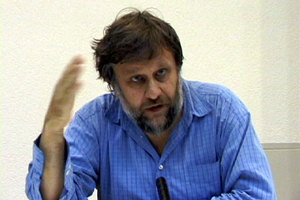 |
Steve Shaviro and Daniel have both written interesting posts - far more interesting than their object of analysis deserves - in response to Zizek's embarrassing 300 piece.
What irks and disappoints about Zizek's tiresome reversal of the 'accepted leftist orthodoxy' on 300 is not so much the reversal itself, but the poverty and banality of the concepts it has yielded. Not every standardly-held view is worth reversing, and the meagre conceptual fare that Zizek's contrarian stance has produced proves that this is the case in repsect of 300. (The one thing that can be said in favour of Zizek's article is that it gives no comfort to Stekelmanism; at least, he is not claiming that 300 is entirely devoid of political implications.) The celebration of discipline is deeply dubious. 'In today's era of hedonist permissivity as the ruling ideology, the time is coming for the Left to (re)appropriate discipline and the spirit of sacrifice: there is nothing inherently "Fascist" about these values.' But, as Daniel asks, 'Could a party that held discipline and the spirit of sacrifice as values - as opposed to simply strategic/organizational principles - really be called a leftist party?' (We'll leave aside the fact that Zizek, whose writing has become increasingly repetitive and poorly organized, seems temperamentally ill-disposed to be an advocate of discipline.)
Then there is the astonishingly naive attempt to present the Greeks of the film as proto-Communists: 'A programmatic statement towards the end of the film defines the Greeks' agenda as "against the reign of mystique and tyranny, towards the bright future," further specified as the rule of freedom and reason - sounds like an elementary Enlightenment program, even with a Communist twist!' As Daniel rightly points out, 'no power, no matter how brutally fascistic, ever actually declares itself to be for the reign of mystique or tyranny. Even Hitler himself took pains to declare that the Reich was for peace...' (All of which reminded me of perhaps the only amusing moments in the otherwise dismal Mitchell and Webb television series, where the two play Nazis who - looking at the skull insignia on their caps - begin to suspect that they might be the Bad Guys. Zizek is acting like the exact opposite of this - an archetypal ideological dupe who, hypnotised by rhetoric about 'the bright future', ignores the (racist, homophobic, authoritarian) behaviour of those who mouth such slogans. Or he is like a man who goes into a bank expecting it to be 'caring', simply because its advertising has told him that it is.)
Both Daniel and Steve are uneasy about Zizek's apparent privileging of 'hedonist permissivity' as the most important bulwark in capitalism's ideological armoury; Daniel because 'the Western political system really revolves far more fundamentally around the grim ideology of the atomized nuclear family, and its accompanying fetish of the glorious, innocent child, than it does on the promise of a sexual utopia', Steve because '[b]y identifying “hedonist permissivity” as the problem — when it is really just a product of the forces of capital accumulation — [Zizek] in effect gives the exact same analysis of postmodern capitalism as the fundamentalist Christian right does, and offers a pseudo-solution (discipline and the spirit of sacrifice) that, like theirs, only serves to preserve the world market system from its own disaggregating tendencies.' However, if capital accumulation is to be tackled, then presumably discipline and organization would have to play a significant part in any successful anti-capitalist struggle - but, precisely, as Daniel says, as strategic necessities rather than as 'values' in themselves. In any case, the dreamwork suturing of neo-liberalism and neo-conservatism described by Wendy Brown means that BOTH 'permissive hedonism' and 'the family' function as ideological imperatives in the currently dominant configuration, even if their co-existence generates enormous tensions, with the result that, crudely put, the family is ideologically defended, but economically dismantled. (It is worth reinforcing that Edelman's emphasis is not so much on the family as on the figure of the Child specifically: according to Edelman, it is the Child - as the embodiment of 'reproductive futurism' - which marks the horizon of acceptable political aspiration.)
A final word on the negative. If I'm not convinced by Steve's rejection of Zizek's mechanical 'labour of the negative' in the name of the Deleuzean interdiction on negativity, it is because I have long found Deleuze's abjuring of the negative equally as wearisome as Zizek's brandishing of dialectical negativity. Deleuze's hectoring call to renounce all negativity constitutes an 'ascesis of the positive' that chimes in all too well with contemporary capitalism's obligatory positivity. (In this respect it is the equivalent in philosophy of what Popism - or better Poptimism - is in pop criticism.) Even the attack on the 'reactive' seems flat with Business Ontology's insistence that we become vigilantly pro-active. Negativity in Deleuze is usually understood in terms of pathology; Deleuze's work may well have overcome Good Sense, but at its worst it remains in thrall to a dreary and reductive model of Good Health, which it prosecutes with all the zeal of a happy-clappy Anglicanism. And, as Infinite Thought is wont to argue, what is the philosophical basis for the rejection of the negative if not the emptiest of tautologies: positivity is good because it is positive, negativity is bad because it is negative.
What is required is an account of the negative far more subtle than is currently blasted from Zizek's unwieldly blunderbuss. Thankfully, Ray Brassier has provided such an account in his recently completed Nihil Unbound, about which far more must be said in the near future.
__________________________________________________________________
UPDATE:
Quick as a flash, Steve Shaviro replies; Larval Subjects enters the fray...

